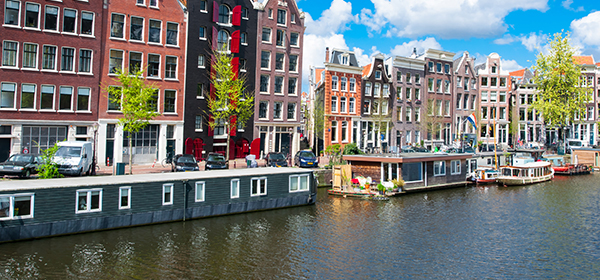
Thinking about moving to Amsterdam? Below we highlight some of the pros and cons of living in Amsterdam.
Amsterdam, the capital city of the Netherlands, is a vibrant and diverse city known for its rich history, artistic heritage, and elaborate canal system. It’s a city that’s as famous for its museums and cultural landmarks as it is for its lively nightlife and liberal attitudes. But like any city, living in Amsterdam comes with its own set of pros and cons. In this article, we’ll delve into the advantages and disadvantages of making Amsterdam your home.
Pros of Living in Amsterdam
One of the biggest advantages of living in Amsterdam is the high quality of life. The city consistently ranks among the top in global quality of life surveys, thanks to its excellent healthcare system, high standard of education, and strong emphasis on work-life balance. The Dutch are known for their laid-back attitude towards work, with many companies offering flexible working hours and the option to work from home. This makes Amsterdam a great place for those seeking a healthier and more balanced lifestyle.
Amsterdam is also a very international city, with residents from all over the world. This multicultural environment makes it easy for expats to fit in and feel at home. The city is home to many international companies, offering plenty of job opportunities for foreigners. Moreover, the Dutch are known for their proficiency in English, with around 90% of the population being able to speak the language. This makes it easy for English speakers to live and work in Amsterdam without having to learn Dutch.
Another major advantage of living in Amsterdam is its efficient and reliable public transportation system. The city is served by a network of trams, buses, and metros, making it easy to get around without a car. In addition, Amsterdam is famous for its cycling culture. The city is equipped with an extensive network of bike lanes, and cycling is often the fastest and most convenient way to travel around the city.
Amsterdam is also a city rich in culture and history. It’s home to world-class museums like the Van Gogh Museum, the Rijksmuseum, and the Anne Frank House. The city’s historic center, with its beautiful canals and centuries-old buildings, is a UNESCO World Heritage Site. Amsterdam also has a vibrant arts scene, with numerous galleries, theaters, and music venues.
Finally, Amsterdam is known for its liberal and tolerant attitudes. The city has a vibrant LGBTQ+ scene and is known for its progressive policies on issues like drugs and prostitution. This openness and tolerance make Amsterdam a welcoming place for people of all backgrounds and lifestyles.
Cons of Living in Amsterdam, Netherlands
While there are many advantages to living in Amsterdam, there are also some downsides to consider. One of the biggest challenges for newcomers is the high cost of living. Amsterdam is one of the most expensive cities in Europe, with high prices for housing, groceries, and dining out. The housing market in particular can be tough, with high demand and limited supply driving up prices. It’s not uncommon for people to have to wait for months or even years to find affordable housing.
Another downside of living in Amsterdam is the weather. The Netherlands is known for its rainy and cloudy weather, and Amsterdam is no exception. The city has a temperate maritime climate, with mild summers and cool winters. It rains frequently throughout the year, and the city can be quite windy. This can make outdoor activities less enjoyable, especially for those used to sunnier climates.
While Amsterdam is a very international city, this can also be a disadvantage. The city’s popularity with tourists and expats can make it feel crowded and impersonal at times. It can also make it harder for newcomers to integrate into Dutch society and make local friends. The city’s international nature can also lead to a sense of transience, with many people coming and going and few staying for the long term.
Another potential downside of living in Amsterdam is the language barrier. While most Dutch people speak excellent English, the official language is still Dutch. This can make certain aspects of life more challenging, such as dealing with bureaucracy or understanding local customs and traditions. While it’s certainly possible to live in Amsterdam without speaking Dutch, learning the language can greatly enhance your experience and help you feel more at home.
Finally, while Amsterdam’s liberal attitudes are a draw for many, they can also be a downside for some. The city’s tolerance of drugs and prostitution can lead to issues with crime and public nuisance. Moreover, some people may find the city’s liberal attitudes too much and prefer a more conservative environment.


